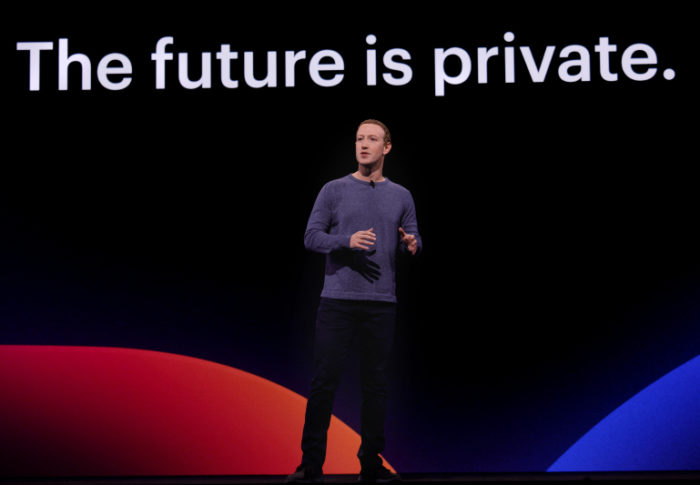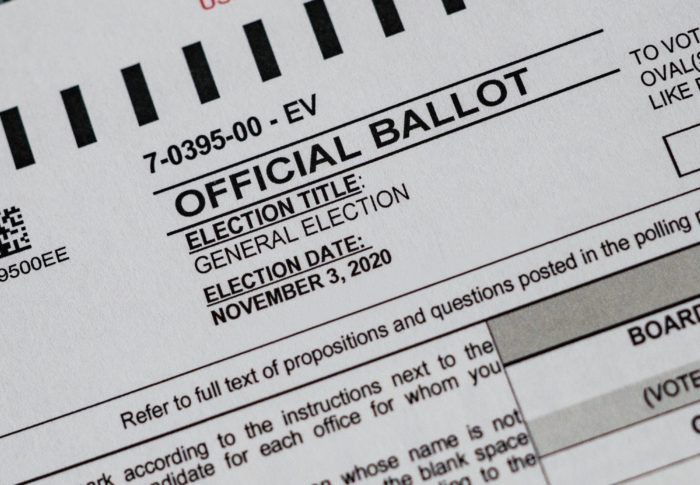Good Monday morning. It’s December 14th. Electors gather today in state capitals to cast the final votes for president, the FDA meets on Thursday to authorize the Moderna vaccine, and the federal government runs out of money on Friday night. Hanukkah started last week, and Christmas is next week.
Breathe.
Today’s Spotlight is 1,305 words — about a 5 minute read.
1. News to Know Now
What to know about the Facebook antitrust lawsuits:
1. The Federal Trade Commission filed suit.
2 Nearly all state governments also filed a parallel suit.
3. They accuse the company of being a monopolist.
4. They want Facebook to spin off Instagram and WhatsApp.
5. They also want Facebook to seek approval for any future acquisitions valued at more than $10 million (which is a pretty tiny acquisition).
6. One big complaint is that Facebook acquires or buries competition.
7. Another is that Facebook user privacy has been eroded.
Facebook’s defense: We haven’t done anything wrong, and these acquisitions were already approved. You don’t get to challenge them later. Facebook is free to use and no one has to use the service, so where is the harm to consumers?
Facebook also says that its competition remains Google, Microsoft, Amazon, and Apple. They also cite services like Netflix that compete with Facebook Watch and smaller but still huge social media companies like Pinterest, Snap, Twitter, and TikTok.
Our take: This surprised no one. Facebook has been publicly maneuvering for more than a year to shield Instagram and WhatsApp. Whatever happens will take years to occur. Large monopoly cases have been brought against AT&T, IBM, and Microsoft when they controlled the industry. Facebook has an argument to make, but nothing will change for a very long time.
There also needs to be a reckoning on consumer privacy, but a big part of that starts with education. Most people still don’t understand internet privacy.
2. COVID-19 Online Resources and News
Great Trackers
Johns Hopkins Dashboard or Animations
COVID-19 Forecast Hub
Google County Level Mobility Reports
Long-Term Care COVID Tracker
NEW: NPR’s County-Level Hospital Tracker
COVID-19 Tech News
Anti-Vaxxer Books Top Search at Amazon, B&N – Bloomberg
CA: 10% Have Opted In To Covid Exposure Alerts – CNBC
Contact Tracing Apps Promised Big & Didn’t Deliver – The Verge
COVID-19: Has technology killed snow days? – Cincinnati Enquirer
Facebook Won’t Require Employees to Get Vaccine – The Verge
Google Search Results Tackle Vaccine Misinfo – CNBC
Vaccinated? Show Us Your App – The New York Times
3. Search Engine News
Data Google Provided
- Mobile website load times were 19 seconds in 2015. That’s why Google collaborated with companies including Yahoo, Microsoft on the Accelerated Mobile Pages (AMP) initiative. And all content heavy websites should be using or testing AMP.
- “Near Me” searches by consumers more than doubled again last year, reveals Googler Reena Nadkarni in this good interview with Greg Sterling.
- Google Maps is rolling out a “Community News Feed” for consumers that will display recent updates business have made in that area. Twenty million daily updates are done in Google Maps.
What Google Debunked
- Using an alternative to a dot com domain like dot blog or dot dentist conveys no ratings boost. That matches past guidance regarding dot edu or dot mil domains. One but: geographic domains (CA in Canada or MX in Mexico) will likely get preference on local searches.
- Keeping your domain registration information private has no effect on how Google ranks the website’s pages. That privacy was frowned upon twenty years ago, but it’s nearly 2021.
Tweet of the Week from Google’s John Mueller: “If we know a text used to be on a page, we might continue to show the page even if the text has been removed. For example, if a company changes its name, you’d still want to find the website if you searched for the old name.”
4. In the Spotlight — Ransomware Surges
Baltimore’s network was hammered with ransomware eighteen months ago in a widely covered event. We wrote about it for a couple of weeks running.
Baltimore County public schools were also struck with ransomware right before Thanksgiving, leading to arguments between the school system and County Executive Johnny Olszewski Jr. On Friday, the county accused the school system executives of refusing to cooperate with them.
The City of Texarkana also disclosed that its water utility was also attacked.
Ransomware cases are rapidly growing. Recent attacks include the Vancouver transit system, Independence, KS (pop. 10,000), Rand McNally, and U.S. Fertility, a chain of 55 clinics in 10 states. Some organizations, like Danish news agency Ritzau, refuse to pay and rely on workarounds.
A security expert told The New York Times that he was aware of more than 100 organizations fighting ransomware attacks during September. Last week, CISA and the FBI issued a joint security alert about ransomware for K-12 schools.
This is an issue that your organization needs to understand and plan for in a clear-eyed manner.
Ransomware Smart Links
Baltimore County executive says school officials… – Baltimore Sun
Baltimore students must trade in device – CBS Baltimore
CISA, FBI warn of ransomware in K-12 Schools – ZD Net
How did ransomware get so bad? – The New York Times
KC suburb spent millions on protection, but… – Kansas City Star
Rand McNally hit by cyber attack – Bleeping Computer
Ransomware attack causing system outages – KTAL / KSHV
Ritzau did not pay ransom – Security Affairs
Vancouver’s transit system hit by ransomware – Bleeping Computer
5. Debunked — Bill Gates and Vaccines
A video of Bill Gates claiming that the vaccine will “change our DNA forever” circulating on social media is misleading and inaccurate.
Read Reuters debunking it here.
6. Following Up — Google Fires Ethicist
We told you last week about Google firing AI ethicist Timnit Gebru. More of the story came to light last week, and we’ve rarely seen technology company employees react so viscerally to personnel moves. This one has them angry.
Dr. Gebru was the lead researcher on a conference paper her team submitted regarding the bias in very large machine learning algorithmsbased on language. Google demanded she remove her affiliation and the names of colleagues from the paper. She refused and was later fired.
Remember that Dr. Gebru is an ethicist. Firing an ethicist over ethical issues is never a good look. Also not a good look is the Google BERT algorithm we told you about before that uses very large machine learning algorithms based on language to provide search results.
Before this even happened, I was avidly (albeit slowly) reading “Algorithms of Oppression” in part to understand the SEO implications. And it’s a significant problem. Alphabet CEO Sundar Pichai has apologized for Gebru’s dismissal and promised to review the matter.
Catch up: fantastic Venture Beat interview with Gebru.
7. Protip — Export Your Google Drive Files
For those of you moving on after Google announced limits on its file storage, you can easily take all your stuff with you.
Here’s the step-by-step for Google Takeout.
8. Screening Room – Take Care of Yourself
9. Coffee Break — New Google Animals… in your home
We’ve told you before about Google’s augmented reality search results that superimpose video of animals near you. Google added 50 animals on Friday.
Learn how to do it here, and no, a giraffe does not fit in my office, so it needs to be scaled down.


